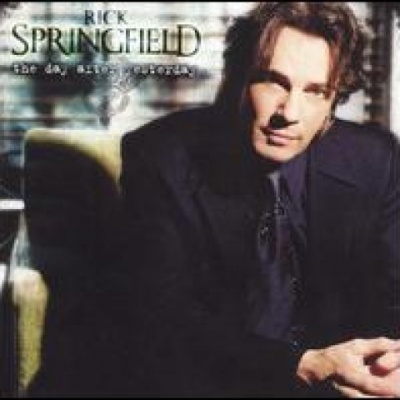
The Day After Yesterday
by Stephen Thomas ErlewineMost covers albums are light-hearted affairs, a way for an artist to recapture their past, or to pay tribute to their earliest musical influences. Not Rick Springfield's 2005 album The Day After Yesterday (whose title is oddly borrowed from the name of the unpublished novel Paul Giamatti's Miles Raymond wrote in Alexander Payne's Academy Award-nominated 2004 comedy Sideways). On this 14-track collection (which does contain one original, "Cry"), Springfield occasionally revisits musical inspirations -- most notably on the Beatles' "For No One" (which was included on his Written in Rock compilation as a teaser for this album) and John Lennon's "Imagine" -- but for the most part he sticks to songs that were hits when he was having hits, or as he calls them, songs he wishes he'd written. There are a bunch of songs from the '80s, ranging from Mr. Mister's chart-topper "Broken Wings" to the Church's neo-psychedelic college rock classic "Under the Milky Way." Well-known hits like 10cc's "I'm Not in Love," the Human League's "Human," Foreigner's "Waiting for a Girl Like You" and Gerry Rafferty's "Baker Street" rub shoulders with such lesser-known chestnuts as the Dream Academy's "Life in a Northern Town," Ambrosia's "Holding on to Yesterday," the Blue Nile's "Let's Go Out Tonight," Cliff Richards' "Miss You Nights" and Lizz Wright's "Blue Rose." What ties these songs together is that they're all moody mid-tempo numbers, alternating between the introspective and the romantic, and Springfield gives them moody interpretations, which aren't just ideal for late-night listening, but also fits the somber, mature tone of his work since his 1999 comeback Karma. If Springfield's voice has a few more ragged edges than it did at his peak in the '80s, it nevertheless doesn't sound worse for wear; in fact, it suits the laid-back, contemplative tone of the album. While none of the songs are given radical rearrangements, they are expertly chosen and are cohesive as an album, which is a testament to both Springfield's taste and his musicianship. If this isn't a major work, it is a satisfying album all the same.
